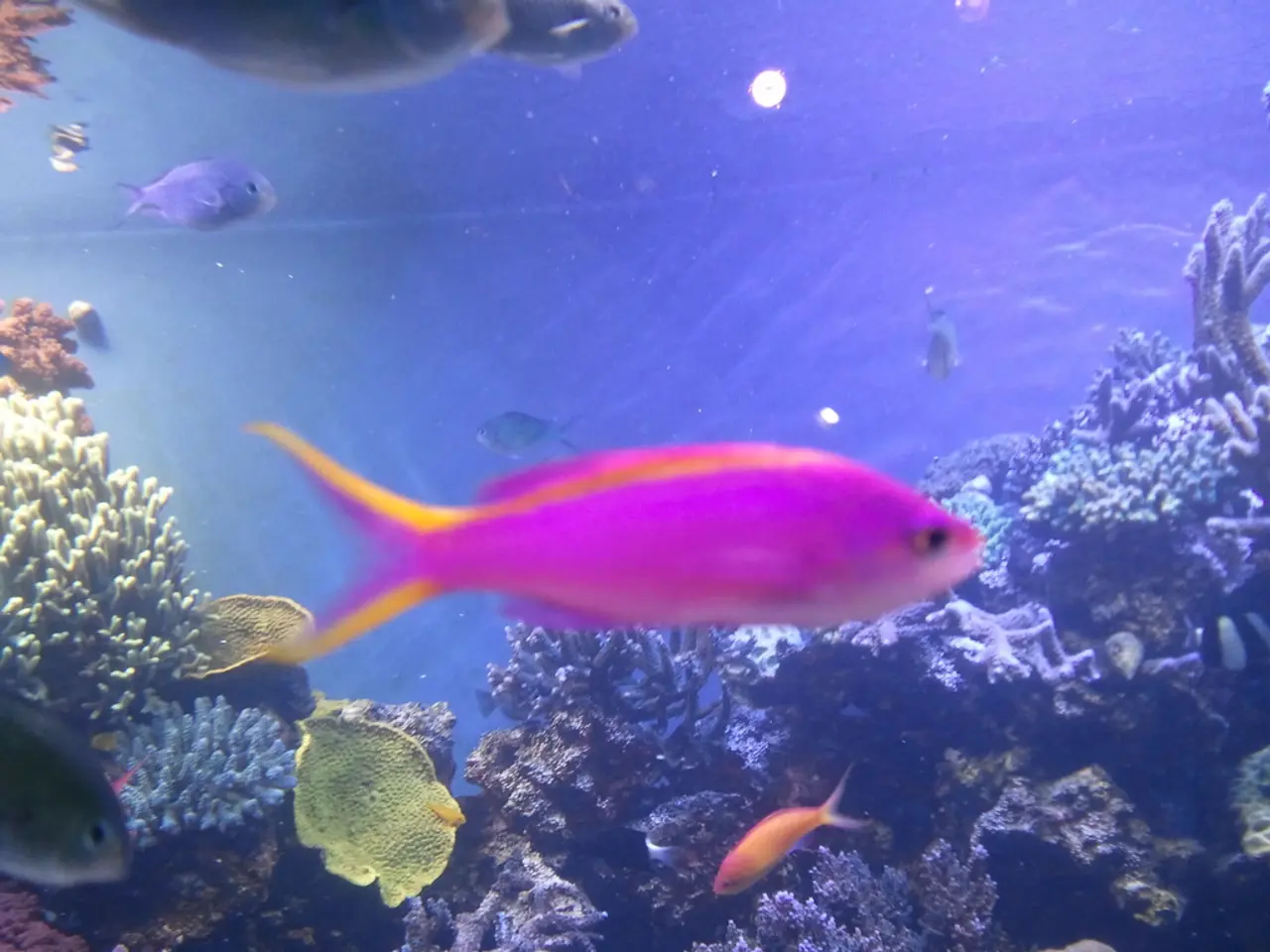Advanced academic programs in the fisheries management field are introduced by UH (University of Hawaii)
University of Hawaii Launches Advanced Fisheries Management Degree Program
The University of Hawaii (UH) is set to introduce a new master's and doctorate degree program in sustainable fisheries management, with support from environmentalists, the longline fishing industry, NOAA, and the state's Division of Aquatic Resources.
This innovative program aims to merge Western and Native Hawaiian fishing management practices while studying marine species around the Pacific region. Kanoe Morishige, a new UH assistant professor, believes that joining the new fisheries management program is a perfect fit for her interests, given her background in Hawaiian studies and Western fisheries management practices.
Morishige, who previously worked at the National Oceanic and Atmospheric Administration's (NOAA) Papahanaumokuakea Marine National Monument, sees the new program as a chance for all to learn through a Native Hawaiian lens how to support fisheries and learn how their kupuna (elders) understood their resources.
Professor Ray Hilborn, a member of the Western Pacific Fisheries Management Council's Science and Statistics Committee, praises the University of Hawaii's new fisheries management advanced degree programs. Hilborn, who specializes in management of Pacific salmon and aquatic ecological research in Alaska, believes that the new program will provide advanced studies in fisheries management, especially for Pacific Islanders and certainly for Native Hawaiians.
UH has hired eight faculty members for the new programs, and officials in Palau, the Marshall Islands, Fiji, and other countries around the Pacific plan to send their students to UH for the new fisheries management advanced degree programs.
Charles Littnan, science director for NOAA's Pacific Islands Fisheries Science Center, believes that the new program will build trust and create a more complete and culturally relevant approach to fisheries management. NOAA and the state's Division of Aquatic Resources are also interested in any research that comes out of UH, particularly nearshore fisheries research, which can be at odds with Western management practices taught on the mainland.
Drazen, who will help lead the new degree programs at UH, believes that there was a gap in fisheries education and that the new program is necessary to train local people for local jobs in Hawaii and throughout the Pacific. Drazen envisions UH graduates going into local jobs in fishery science or management with government agencies, nonprofit organizations, or academia.
Morishige's goals for the new program include helping local students, especially female scientists, and keeping Hawaii students home instead of sending them to pursue advanced degrees on the mainland. Morishige believes that working with the Papahanaumokuakea Marine National Monument taught her the potential to embed knowledge of Indigenous cultures into the new program.
The program is scheduled to be in full swing in the fall of 2026, but Morishige will begin teaching this month. Hilborn calls the University of Washington's School of Aquatic and Fishery Sciences the "premier U.S. institution for fisheries management," but the search results do not provide information about who had the idea to establish a master's and doctoral program for sustainable fisheries management at the University of Hawaii three years ago.
Overall, the new advanced degree programs in fisheries management at the University of Hawaii are expected to prepare graduates for careers in federal and state agencies, regional and international management bodies, NGOs, and academic research, while providing a culturally relevant approach to fisheries management in the Pacific region.
Read also:
- Peptide YY (PYY): Exploring its Role in Appetite Suppression, Intestinal Health, and Cognitive Links
- Toddler Health: Rotavirus Signs, Origins, and Potential Complications
- Digestive issues and heart discomfort: Root causes and associated health conditions
- House Infernos: Deadly Hazards Surpassing the Flames








